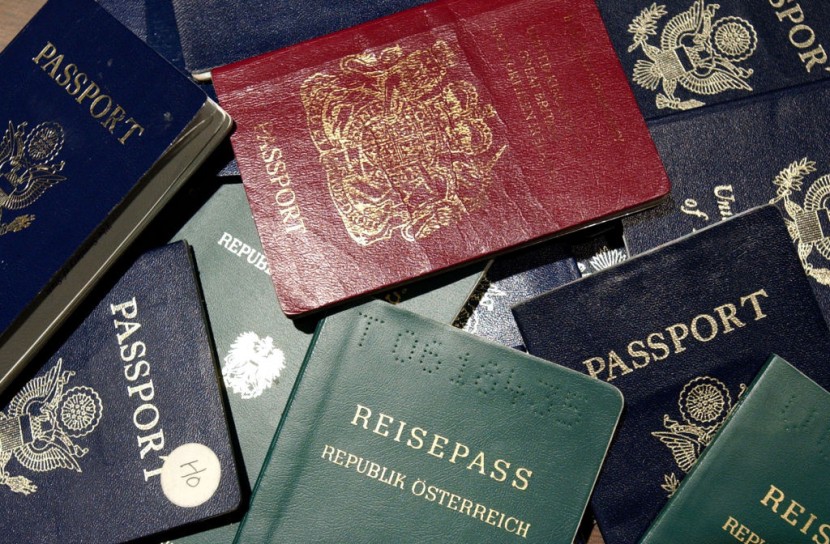
According to a new quarterly report from London-based global citizenship and residence advice business Henley & Partners, three Asian passports provide their holders more flexibility to travel internationally than those from any other nations.
Japan's residents may travel to a record 193 countries without a visa or with one on request, only one more than Singapore and South Korea, whose nationals can freely visit 192.
Top 10 Strongest Passports in The World
And with Asia-Pacific opening up following COVID-19, its people are more likely to exercise that freedom to travel once more.
According to Henley Passport Index's most recent report, which is based on statistics from the International Air Transport Association (IATA), global travel is currently at a level that is almost 75% higher than it was before the pandemic.
Per CNN, numerous European nations are positioned close to the top of the leaderboard below the top three Asian nations. Finland, Italy, and Luxembourg are next on 189 destinations, followed by Germany and Spain, who are tied on 190.
Austria, Denmark, the Netherlands, and Sweden are tied at fifth place, followed by France, Ireland, Portugal, and the United Kingdom, which are ranked sixth overall.
At No. 7, among Belgium, Norway, Switzerland, and the Czech Republic, are New Zealand and the United States. Afghan people remain at the bottom of the index once more and are only permitted entry into 27 nations without a prior visa. The Henley Passport Index lists the top passports to own in 2023.
1. Japan
2. South Korea and Singapore
3. Spain and German
4. Finland, Luxembourg, and Italy
5. Netherlands, Austria, Denmark, and Swede
6. Portugal, France, Ireland, and the United Kingdom
7. Belgium, New Zealand, Norway, Switzerland, Czech Republic, United States
8. Malta, Greece, Australia, Canada
9. Poland and Hungary
10. Slovakia and Lithuania
Meanwhile, here are the countries that possess the worst passports in 2023:
102. North Korea
103. Nepal, Palestinian
104. Somalia
105. Yemen
106. Pakistan
107. Syria
108. Iraq
109. Afghanistan
Before the COVID-19 pandemic, the International Monetary Fund (IMF) said that the tourist sector had risen to the top of the global economy. It produced 10% of the world's GDP and supported more than 320 million employment globally.
However, there was a sharp decline in the number of individuals traveling to other countries as a result of the pandemic and the ensuing restriction on the majority of foreign flights, as per The New.
According to the Henley Passport Index, which is based on information from the IATA, worldwide travel has reached almost 75% of its pre-pandemic levels.
It is expected that residents of the Asian nations with the strongest passports will once again take advantage of the freedom to travel now that the Asia-Pacific has opened up to outside and inside travel.
Read Also : Ukraine War: Soldier Admits 'No One Counts the Dead' in Ukraine Town Under Heavy Attack by Russia
Economic Strength Linked to Having Powerful Passport
According to Henley & Partners' study, there is a significant correlation between passport strength and economic might. Only 17% of countries and only 6% of passports globally provide their holders visa-free travel to more than 4/5 of the world's 227 destinations and more than 70% of the global economy, respectively.
With Japan's own GDP contributing about 5% to the global economy, the 85% of the world's countries that do not require visas for entry are all covered by the top-ranked Japanese passport.
With a score of just 27, Afghanistan remains at the bottom of the Index, giving its citizens access to 166 fewer countries than Japanese citizens do, marking the worst difference in global mobility in the Index's 18-year history of tracking passport power.
Due to this, just 12% of the world's population and fewer than 1% of the world's GDP require a visa for holders of an Afghan passport. Intriguingly, the conflict in the Ukraine hasn't had a substantial influence on Russia's or Ukraine's Index ratings, with both maintaining a comparable ranking since the invasion over a year ago.
Per Forbes, Ukraine is rated 36th in 2023 with a score of 144, while Russia is placed 49th with a score of 118, 13 places lower. In practice, however, airspace restrictions and sanctions have effectively prevented Russians from traveling across the majority of the industrialized world, with the exception of the United Arab Emirates and Turkey.
Ukraine's people, on the other hand, have been given emergency permission to reside and work in the EU for up to three years, accelerating its already quick ascent up the Index-it has risen more than 24 places over the past ten years.
If Ukraine were to join the EU, which appears increasingly plausible given that its most recent application was accepted in record speed, it would very certainly move up to the top 10 most powerful passports worldwide.
While Asia and Europe continue to dominate the top of the Index, Henley identifies the strengthening of Gulf state passports as a significant trend for the upcoming year. With a score of 178 and access to approximately 70% of the world's GDP, the UAE has advanced an astounding 49 spots in the previous ten years to rank 15th overall.
Expect to see both Kuwait and the most recent World Cup hosts Qatar enjoy significantly higher passport scores in the near future, as it is anticipated that they will both establish a visa-free agreement with the EU this year.
Related Article: China Crash: 17 Killed, 22 Injured During Road Traffic Accident as the Country Opens Up Back Following Intense COVID-19 Chaos
@YouTube
© 2025 HNGN, All rights reserved. Do not reproduce without permission.








